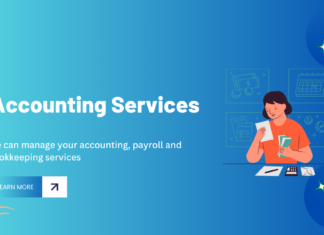Are you looking for ways to access funds without selling your hard-earned investments? A loan against shares could be the answer. This financial tool allows you to leverage the value of your shares as collateral, unlocking liquidity while maintaining ownership. However, like any financial decision, it’s essential to weigh the potential benefits and risks before taking the plunge.
Understanding Loan Against Shares
A loan against shares (LAS) is a secured loan where you pledge a portion of your shares as collateral. The lender determines a loan amount based on the current market value of your shares and a percentage margin. You can access funds for various purposes while still retaining ownership and potential benefits of your shareholdings.
Benefits of Loan Against Shares
- Quick Access to Liquidity: LAS approval is often faster than traditional loans due to the presence of collateral. If you need quick funds for emergencies, business opportunities, or other needs, LAS offers a swift solution.
- Retain Investment Ownership: Perhaps the biggest advantage – you don’t have to sell your shares! This allows you to maintain your long-term investment strategy and benefit from potential price appreciation and dividends.
- Lower Interest Rates: LAS usually carry lower interest rates than unsecured loans like personal loans because they are secured against your shares. This translates to potential savings on interest costs.
- Flexible Use of Funds: Unlike specific-purpose loans, funds from a loan on shares provide flexibility. Use them for:
- Emergencies
- Investing in new opportunities
- Debt consolidation
- Business expansion
- Large purchases
- Potential Tax Benefits: In some countries, the interest paid on LAS may be tax-deductible depending on how you utilise the funds. Consult a tax advisor to understand any potential tax advantages.
Risks of Loans Against Shares
- Market Volatility: Share prices fluctuate. If their value decreases, you might be asked to pledge additional shares or reduce your loan amount to maintain the lender’s margin requirements.
- Risk of Default: In the worst-case scenario, if you fail to repay the loan, the lender has the right to sell your pledged shares to recover their losses.
- Fees and Charges: Be aware of processing fees, prepayment penalties (if applicable), and other charges associated with LAS. These can add to the overall borrowing cost.
Should You Consider a Loan Against Shares?
LAS can be a smart financial move if:
- You need funds but don’t want to disrupt long-term investments.
- You anticipate your shares maintaining or increasing in value.
- You are confident in your ability to repay the loan on time.
- You have a diversified portfolio to minimise risk.
Let’s dive deeper into scenarios where a Loan Against Shares (LAS) could be a valuable solution:
- Short-Term Financial Needs: If you have a temporary cash crunch – a medical emergency, unexpected home repair, or a sudden business opportunity – LAS offers quick funds without needing to sell investments intended for long-term growth.
- Investing in New Opportunities: Spotted a promising investment but don’t want to liquidate current holdings? LAS can provide the capital to seize the opportunity while your existing investments continue to work for you.
- Debt Consolidation: If you’re burdened by high-interest credit card debt or personal loans, LAS often comes with lower interest rates. Consolidating your debt into an LAS could lead to significant savings over time.
- Diversification Strategy: Want to diversify your portfolio? LAS funds could be used to strategically invest in new sectors or asset classes, enhancing your overall portfolio’s risk-return profile.
- Confident Market Outlook: If you’re bullish about the long-term prospects of your shares and believe their value will continue to rise, LAS lets you access liquidity without losing potential for future growth.
When LAS Might NOT Be the Ideal Choice:
- Uncertain Income: If your income is irregular or you cannot confidently commit to regular loan repayments, LAS might add undue financial stress.
- Highly Volatile Shares: If your holdings are in a sector prone to drastic price fluctuations, LAS carries higher risk. Drastic price drops could trigger margin calls or potential loss of your shares.
- Immediate Need to Sell: If you need to liquidate your investments for their full value urgently, LAS may not be the fastest solution. The approval process still takes some time.
Key Takeaway
Ultimately, the decision to pursue a Loan Against Shares is personal and hinges on your individual financial circumstances, your investment portfolio, and your risk tolerance.
Let me know if you’d like to explore any specific scenario in even greater detail!
How to Minimise the Risks
- Conservative Borrowing: Don’t overextend yourself. Borrow only what you need and are confident in repaying.
- Maintain Margins: Monitor your share prices and proactively top up additional collateral if their value declines.
- Choose Reputable Lenders: Conduct thorough research and opt for established financial institutions with transparent terms and good customer service.
- Diversified Portfolio: A well-diversified portfolio reduces the risk of your entire investment value declining drastically due to fluctuations in any single sector, minimising LAS risk.
- Long-Term Mindset: Approach LAS with a long-term focus. Avoid taking loans against shares you might plan to sell in the short term, as market fluctuations could leave you in a tight spot.
Choosing the Right Lender
Selecting the right lender for your LAS is crucial. Beyond interest rates and fees, consider these aspects:
- Reputation: Opt for established financial institutions with a proven track record and positive customer reviews.
- Transparency: Ensure clear communication regarding terms, fees, and loan conditions.
- Customer Service: Choose a lender with responsive customer support to address any questions or concerns throughout the loan process.
- Technology: Consider lenders with online platforms for applications, account management, and potentially faster processing.
- Flexibility: Look for lenders with flexible repayment options to fit your financial situation.
By prioritising these factors, you can secure an LAS that aligns with your needs and provides a smooth borrowing experience.
Conclusion
A loan against shares can be a powerful financial tool for savvy investors. By understanding the advantages, associated risks, and mitigation strategies, you can make an informed decision about whether this solution aligns with your financial goals. If used responsibly, a loan against shares opens up opportunities without jeopardising your long-term investment journey.





